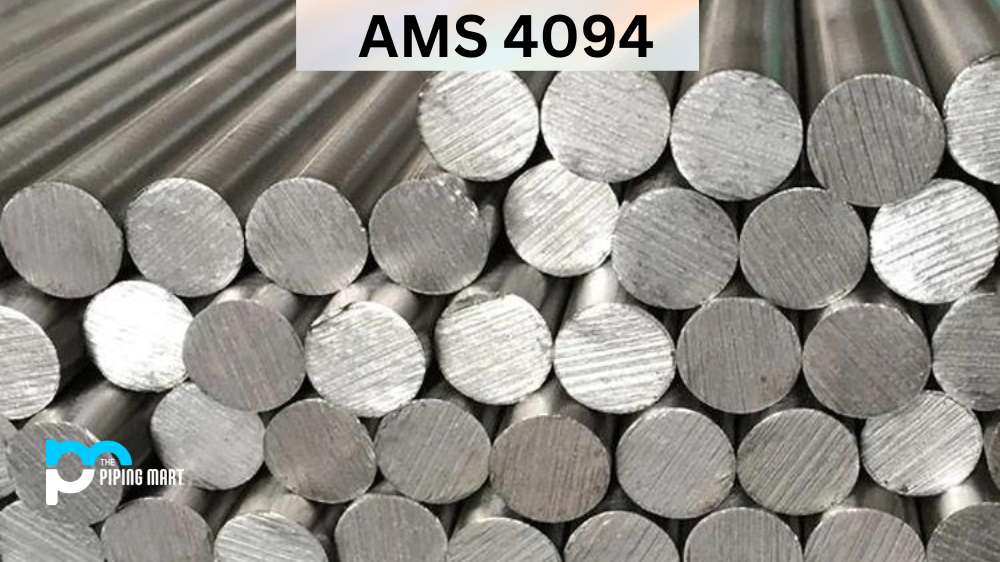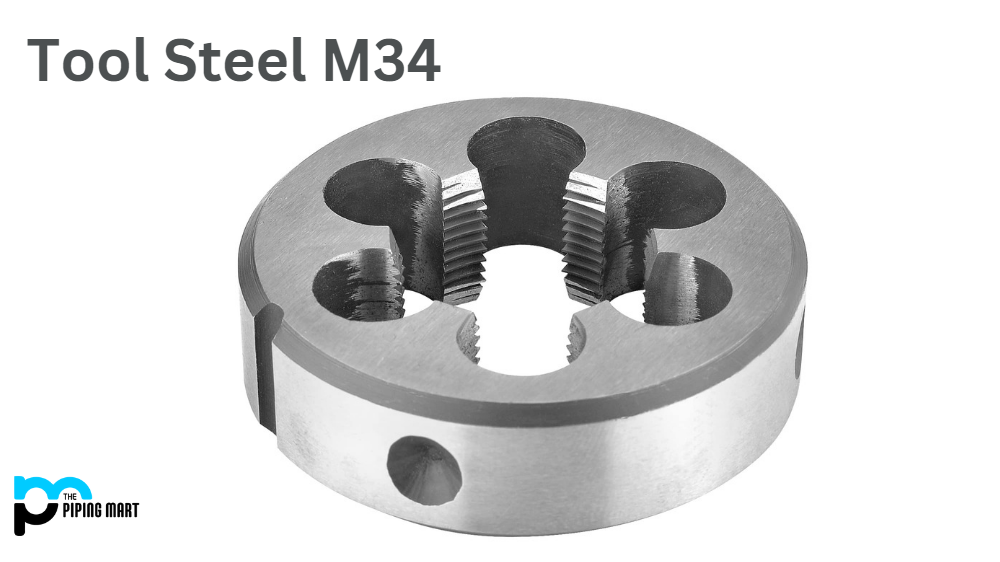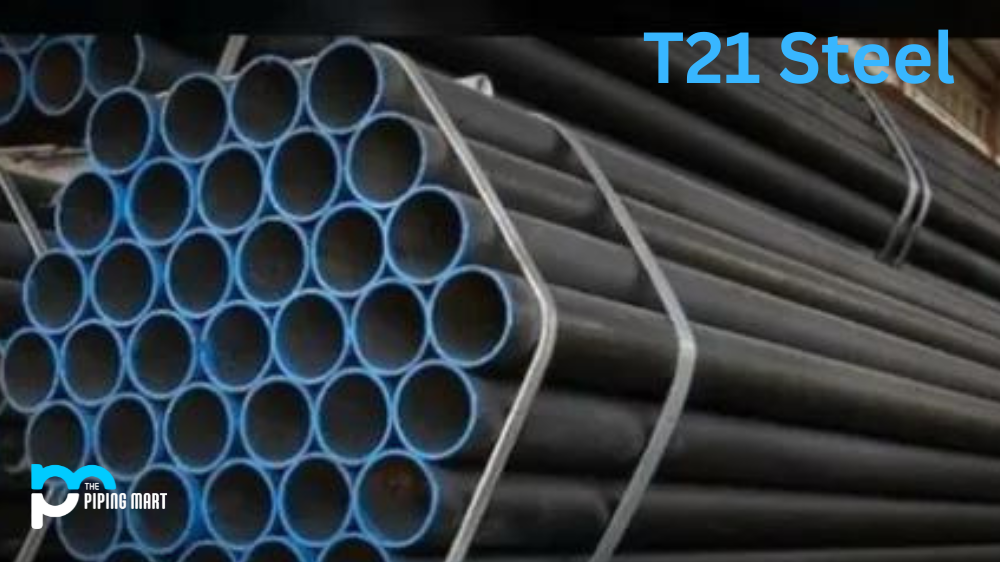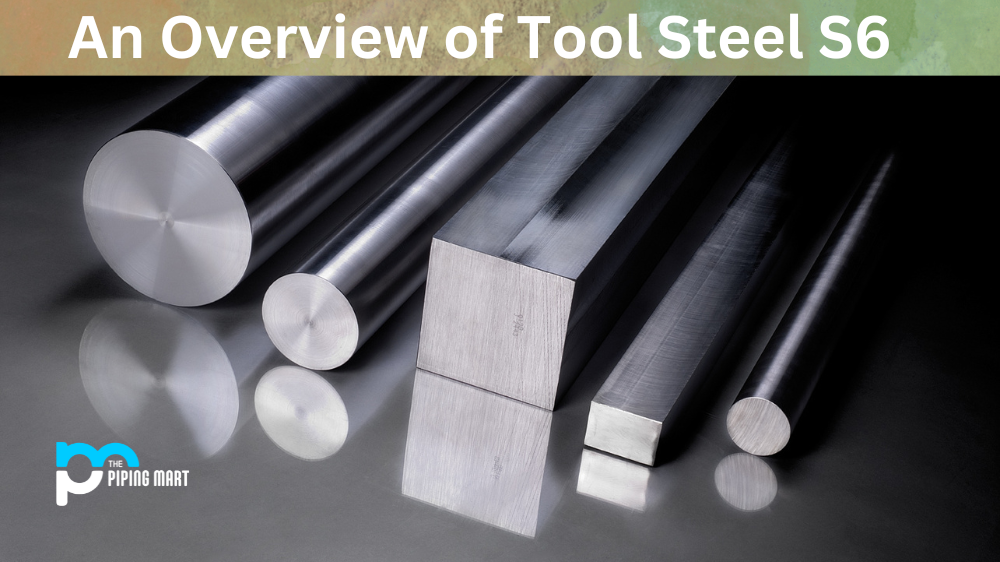If you are in the manufacturing or engineering industry, you have heard of AMS4094. This unique steel alloy is designed to withstand high-stress environments and demanding applications where other materials falter. This blog post will take you through everything you need to know about AMS4094, including its composition, physical and mechanical properties, uses, hardness, and heat treatment.
What is AMS 4094?
AMS 4094 (also known as Aluminium 2219 Alloy) is a specification set by the Aerospace Materials Specification Committee for non-destructive testing methods of aerospace components. This specification outlines the requirements for the eddy current inspection of titanium alloy bars, wire, and billets used in aircraft parts. Using eddy current testing, AMS4094 ensures the quality and integrity of these materials, which are crucial for aircraft performance and safety. This specification is just one example of the meticulous attention to detail and testing that goes into aerospace manufacturing, emphasizing the importance of maintaining high standards in this industry.
AMS 4094 Composition
AMS 4094 is a steel alloy primarily composed of iron, nickel, and chrome. It also contains traces of other elements, such as silicon, manganese, and molybdenum. The composition of AMS 4094 is carefully controlled to ensure that the final product can withstand extreme conditions, such as high temperatures and corrosive environments.
| Element | Content (%) |
|---|---|
| Aluminum, Al | 93 |
| Copper, Cu | 6.3 |
| Manganese, Mn | 0.3 |
| Zirconium, Zr | 0.18 |
| Vanadium, V | 0.10 |
| Titanium, Ti | 0.06 |
AMS 4094 Physical Properties
AMS 4094 is a heat-resistant steel alloy designed to maintain its mechanical strength even at high temperatures. It has a density of 8.139 g/cm³ and a melting point of 1390°C. Additionally, AMS 4094 has excellent thermal conductivity, making it an ideal material for applications where heat dissipation is critical.
| Properties | Metric | Imperial |
|---|---|---|
| Density | 2.6-2.8 g/cm3 | 0.0939- 0.101 lb/in3 |
| Melting point | 510°C | 950°F |
AMS 4094 Mechanical Properties
AMS 4094 has exceptional mechanical properties, making it capable of withstanding high-stress environments. It has a tensile strength of 1275 MPa, a yield strength of 1115 MPa, and an elongation of 15%. These properties make AMS 4094 perfect for applications with anticipated high-pressure loading.
| Properties | Metric | Imperial |
|---|---|---|
| Tensile strength | 170 MPa | 24656 ksi |
| Yield strength | 76 MPa | 1022 ksi |
| Fatigue strength | 105 MPa | 15229 |
| Elastic modulus | 70-80 GPa | 10153-11603 ksi |
| Poisson’s ratio | 0.33 | 0.33 |
| Elongation | 18% | 18% |
AMS 4094 Equivalent
| AMS 4066 | ASTM B211 | ASTM B247 | MIL A-46808 | QQ A-367 |
| AMS 4068 | ASTM B221 | ASTM B316 | MIL A-8920 | QQ A-430 |
| ASTM B209 | ASTM B241 | MIL A-46118 | QQ A-250\30 | SAE J454 |
AMS 4094 Uses
AMS 4094 is used in various applications, including aircraft engine components, gas turbine components, and steam turbine components. Its unique properties make it the ideal material for use in these applications since it can withstand the high temperatures and pressure conditions required.
AMS 4094 Hardness
The hardness of AMS 4094 depends significantly on the alloy’s heat treatment. After treatment, it can range from 280HB (annealed) to 444HB (quenched and tempered). Hanging AMS 4094 carefully during the heat treatment process can also affect its hardness, so it is crucial to have proper quality control measures in place.
AMS 4094 Heat Treatment
Heat treatment is essential in manufacturing AMS 4094 to ensure the final product has the desired properties. The treatment process includes annealing, stress relieving, solution heat treating, quenching, and tempering. This heat treatment ensures that the final product can withstand the harsh environmental conditions it is meant to operate in.
Conclusion
In conclusion, AMS 4094 material is a unique steel alloy designed to withstand extreme conditions, including high temperatures and corrosive environments where other materials might fail. The composition, physical and mechanical properties, uses, hardness and heat treatment are critical to ensure the final product can withstand its intended application’s demands. The use of AMS 4094 in various applications continues to rise as its value becomes more apparent to manufacturers and engineers. Hopefully, this article has shed some light on AMS 4094 in today’s engineering and manufacturing industries.

Abhishek is a seasoned blogger and industry expert, sharing his insights and knowledge on various topics. With his research, Abhishek offers valuable insights and tips for professionals and enthusiasts. Follow him for expert advice on the latest trends and developments in the metal industry.




